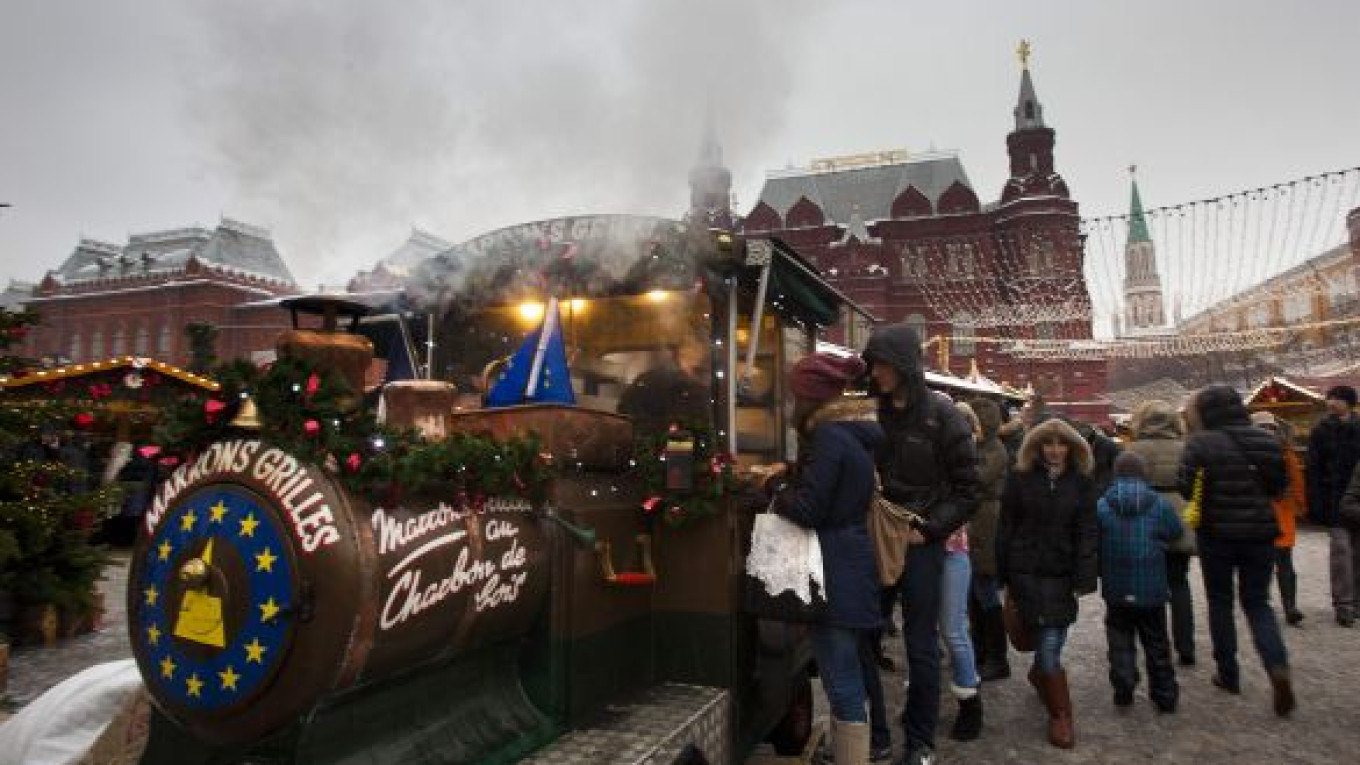At a news conference on Thursday to sum up the Federal Consumer Protection Service's results of the outgoing year, Russia's chief sanitary inspector, Gennady Onishchenko, took the opportunity to warn Russians of the dangers of the upcoming 10-day New Year's break, which he dubbed "10 days of horror."
"We are standing on the threshold of these 10 days of horror, when the overwhelming majority of the population will be left to their own devices, and there is no worse enemy for a citizen of the Russian Federation than he himself," Onishchenko told journalists in comments carried by BBC's Russian service.
"At best, it is absolutely meaningless, watching the television screen unblinkingly, the complete spiritual indiscriminateness of the substitutes that come to us from the screen. The most humane thing there, in my opinion, is the broadcasts about murders," said Onishchenko, head of the Federal Consumer Protection Service. "And ending it all with gluttony, the immeasurable consumption of alcohol, which spills over, of course, into an unhealthy situation for each family."
The public holiday in Russia this year runs from Dec. 29 to Jan. 9, leaving most Russians with 10 days of vacation. Onishchenko urged families to avoid alcohol altogether during that time, saying it would only set a bad example for younger family members.
"It's not fun for you to be with your family? You have to induce a good mood?" Onishchenko said. He also provided prognoses for the upcoming year and answered journalists' questions about a wide range of topics, only occasionally lapsing into heavier subjects, one of which was Moses' strong understanding of the shelf life of food products.
"It was very clearly written with him, that meat can be eaten on the first day and the second, and after that it must be destroyed," Onishchenko said in comments carried by Vedomosti.
Perhaps his most optimistic prediction for the new year was that the number of smokers and "worshippers of Bacchus," the Greek god of wine and ritual madness, would decline thanks to new legislation limiting the consumption of alcohol and smoking.
And instead of journeying to warmer countries for the holidays, he advised Russians to head to northern Russia. "There's Losiny Ostrov and Sokolniki, and for more aesthetic moods, there's the Russian North and skiing," he said.
Calls to the watchdog's press service went unanswered late Thursday.
Onishchenko, who has headed the watchdog since 1996, is known for making statements that many consider flamboyant and far-fetched. In August, he spoke out against the dangers of drinking kefir and driving, an act that he equated with drunk driving. Kefir is a traditional Russian dairy product with a minuscule amount of alcohol.
Earlier, in February, he advised people "who don't know how to dress properly for the cold" to avoid attending political rallies.
As for what awaits Russians after the "10 days of horror," the country's top doctor had one prognosis for the immediate future: an increase in flu cases in the second half of January.
Related articles:
A Message from The Moscow Times:
Dear readers,
We are facing unprecedented challenges. Russia's Prosecutor General's Office has designated The Moscow Times as an "undesirable" organization, criminalizing our work and putting our staff at risk of prosecution. This follows our earlier unjust labeling as a "foreign agent."
These actions are direct attempts to silence independent journalism in Russia. The authorities claim our work "discredits the decisions of the Russian leadership." We see things differently: we strive to provide accurate, unbiased reporting on Russia.
We, the journalists of The Moscow Times, refuse to be silenced. But to continue our work, we need your help.
Your support, no matter how small, makes a world of difference. If you can, please support us monthly starting from just $2. It's quick to set up, and every contribution makes a significant impact.
By supporting The Moscow Times, you're defending open, independent journalism in the face of repression. Thank you for standing with us.
Remind me later.


